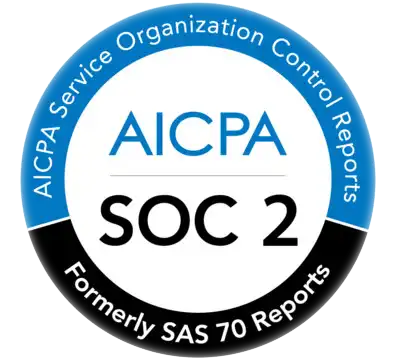From 2024 onwards, businesses in New Jersey (and elsewhere around the U.S.) have one more report to file: a Beneficial Owners Information report, or BOIR. It’s filed with FinCEN, the Financial Crimes Enforcement Network, and provides information about direct and indirect owners of a business. This helps to make business ownership more transparent, while fighting illicit activities like money-laundering.
Not every New Jersey business needs to file a BOIR. Some are exempt. But the vast majority, including corporations and LLCs, will need to file one, and there are penalties if you miss the deadline or file incorrectly. If you work in the legal or accounting profession, you’ll need to be particularly au fait with the ins and outs of BOI reporting, as you may have clients coming to you for help with their reports. This guide explains more.
Step-by-Step Instructions for FinCEN Filing in NJ
The first thing to note about BIOR filing for New Jersey businesses (and all other businesses around the U.S.) is that the process is done online, via FinCEN’s BOI E-Filing System. You simply have to log onto the system and then enter the requested information before submitting your report. Note, too, that this is a one-off filing, so you won’t have to worry about doing it every year. Here’s how:
- Identify all beneficial owners of your company. The CTA outlines exactly what counts as a beneficial owner. As a general rule, anyone who has a significant level of influence over your business activities or a certain level of indirect ownership over your company’s equity interests will qualify.
- Gather all necessary information from the business’ various beneficial owners. The required info for a BOI report includes owners’ names and addresses. You’ll need copies of a photo ID for each one of them, too.
- With all the info ready, you can log onto the FinCEN system and start filling out the form. There are two options for doing this. You can either fill it all in online or download and enter the relevant data in a PDF file at your own pace, before uploading the completed PDF to the system. It’s wise to double-check all entered information before finally submitting your BOI report.
Important Information to Know About BOI Reports

That’s the basics covered. But you may still have questions about how, exactly, BOI reporting works.
Who Needs to File?
The short answer: almost every NJ business needs to do a BOI report.
The longer answer: most businesses need to file, including LLCs and corporations, and any other business that files with the NJ Secretary of State as part of its formation. However, there are some exceptions, with the CTA outlining 23 types of business that count as “exempt.” Examples include publicly traded firms and government agencies.
When Do You Have to File By?
That depends. Specifically, it depends when your business was made. Let’s say your business was made prior to 2024, for instance. In that case, you’ve got until January 1, 2025 to complete your report (though it’s best to complete it as soon as you can). For firms made in 2024, the deadline is 90 days after formation. Finally, for 2025 businesses and all future firms, the deadline will be 30 days post-formation.
So, if you’ve got an older business that has been around a while, you’ll need to file your BOIR before 2025 begins. For all other businesses, there’s either a 90-day or 30-day grace period to gather the relevant info and file your report.
Are There Penalties for Not Filing?
Absolutely. You can face both civil and criminal penalties if you fail to file your BOIR on time, and those penalties may become even more severe if you fail to file at all. In the short term, you could look at fines of up to $500 a day for every day you go beyond the deadline. In the long term, those who fail to fulfill their BIOR obligations may face jail sentences of two years and fines of up to $10,000.
What Is the Purpose of the CTA?
Put simply, the CTA came in to fight various sorts of crime and illicit business activity. Before this act, there was a long history of criminals essentially masking their activities through misuse of obtuse business ownership systems. In simpler terms, they could set up a “front” or shell company to hide the likes of money laundering, and it would be quite tricky to prove their activity or even involvement.
Now, thanks to the CTA, every business has to share details about its beneficial owners and even provide photo IDs for them all. Because of that, it will be significantly harder for any bad actors to conceal themselves.
Do New Jersey Accountants Need to File BOI Reports?
Yes, a typical New Jersey accountancy firm will need to file a BOI report for itself. To do this, you’ll follow the same procedure as any other business: identify all beneficial owners, gather details on the owners, and submit the relevant info via the e-filing system online. As with other businesses, if you fail to file on time, you could face various fines and other penalties.
Accountants: Filing BOI Reports for Your Clients

As well as filing their own BOI reports, accountants may have clients who need to do so. You may have clients already asking you about whether they need to file a BOIR or other questions about the CTA and how it affects their businesses. The arrival of BOI reporting may even be of benefit to some accountants, helping them gain more clients who need help with the report filing process.
Here’s what you need to know to help your client base:
- Read the Act: To explain the CTA and its specifics to your clients, reading it is the obvious first step. It’s the best way to understand the specifics of how this act works, along with the various requirements and expectations of businesses, plus a full list of the aforementioned exemptions.
- Communicate: Let’s say you’ve got some business clients who you know are required to file BOI reports. Let them know. A big issue with the introduction of this particular report is that there are many business owners who aren’t 100% aware of how it works or assume they don’t need to file. Many rely on partners – like lawyers and accountants – to let them know.
- Consider BOI Reporting as a New Service: Many accountants are grasping this new opportunity of BOI reports with both hands, and your firm could do the same. Consider offering a new service to help clients file their BOI reports, possibly with the aid of BOIR software to save you time.
- Develop a Process that Works for You: Establish your own systems and workflows for filing BOI reports for your clients. Find the most effective, efficient ways to establish beneficial owners and gather all necessary information to mitigate risks and avoid any confusion or incorrectly filed reports.
Do New Jersey Lawyers Need to File BOI Reports?
Yes, just like accountancy firms, legal firms will also need to file BOI reports in the vast majority of cases, unless they meet the exemption criteria outlined in the CTA. If you are required to file a BOI report, you’ll need to do so according to the relevant deadline, depending on when your firm was established, and file using the e-filing system via FinCEN.
Lawyers: Advising Your Clients About BOIR
Just like accountants, lawyers may also find themselves facing clients who have questions about the CTA and BOI reporting. Clients with their own businesses, for instance, may raise queries with their lawyers about whether or not they need to complete a BOIR and how to identify beneficial owners.
- Know the Specifics: Above, we advised accountants to read through the CTA to comprehensively understand it. The same tip applies to lawyers. In fact, it’s arguably more important for lawyers to be thoroughly familiar with what the CTA involves, and all the various systems, exemptions, and intricacies involved to reliably inform and aid their clients.
- Be Thorough: Lawyers work best when they have all the info, or at least as much info as possible, about a case or situation. If you don’t have every detail of every beneficial owner, you could get into trouble by filing an incomplete BOIR (or advising your clients to do so). Make sure you communicate closely with clients to get every bit of data the BOIR demands.
- Advise Clients with Care: BOI reporting can be complicated, particularly for businesses with complex or layered ownership structures. It’s also a relatively new concept that businesses and legal professionals alike are still discovering. As such, advise your clients carefully, and avoid making any definitive recommendations or statements you’re not 100% sure about.
Summing Up: The Importance of Understanding the CTA
Whether you’re in the legal profession or accountancy, it’s clear that a thorough understanding of the CTA and BOI reporting system is paramount. It will not only help you in your own business FinCEN filing but may also help you when advising clients or possibly expanding your firm’s service range, too. So, read through the details of the act, understand the exemptions, and strengthen your CTA understanding to put yourself in the best possible position.






